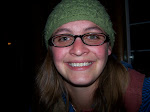I woke up this morning to hear that my neighbor across the way had died up in the loma. No one knows exactly what happened. They had been harvesting beans and he packed up his mule and started the long trek down yesterday afternoon. This morning a young man found him and came down to let his family know. As I’m writing this, a group of people has gone up into the mountain to bring his body back down. They have cleaned his yard, chopped the weeds around his house, and set up a tent for people to sit under in case it rains. And they have cleaned up his house so that they can lay out his body when the group that went to the mountain arrives with it.
Death is a common theme around here, particularly in a community made up largely of the older generation, as the young adults and people in their 20s and 30s have largely moved away from the campo to the cities. With death comes certain rituals that have been practiced for generations among the people of the Dominican
Republic.
The first part of these traditions is the velorio, which has already started for my neighbor although his body has not yet arrived, and will continue until tomorrow morning. Normally, it begins with the laying out of the body, and then all the close family members (spouses, parents, children, siblings) will sit in a room with the body and wail. People come in to pay their respects, which causes the family to wail even more loudly. After paying their respects people will gather outside in chairs and chit chat or play dominoes on the domino tables that have been brought in. In the normally separate kitchen building, someone is generally making coffee or hot chocolate, which they pass out on trays in little plastic cups usually accompanied by mints. Those who are close relatives of the family (cousins, aunts, uncles, etc.) will stay all night at the velorio, many until they take the body for burial in our little cemetery.
Following this is the novena, which lasts nine days. On these nine nights close family and friends gather and play dominoes, drink coffee, suck on mints, and talk. At the end of each evening they play the palos, which are big bongo like drums and sing.
After the novena comes the rezo. At the rezo, anyone and everyone who was friends with or family with the deceased comes to pay their respects to the family. This means that sometimes as many as four or five buses come from the capital bringing extended family and friends to the campo. The immediate family cooks food for everyone, and I mean everyone. People will come early in the day and leave in the evening to head back to wherever they have come from.
Depending on how religious the family is there are other traditions they will follow as well. Some will not play music or drink for a month or more afterwards. And many will have a cabo de año every year on the anniversary of the person’s death for seven years.
Pico Duarte, Ojo de Agua, Good People, Thank You
14 years ago

No comments:
Post a Comment